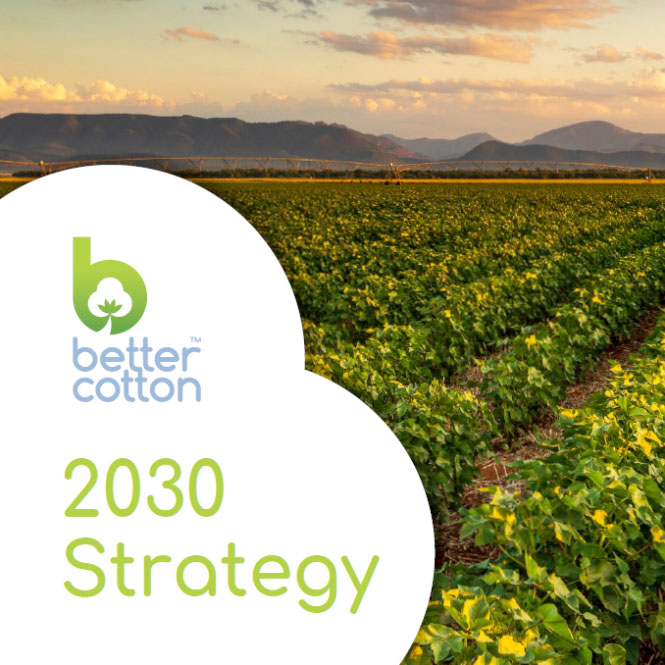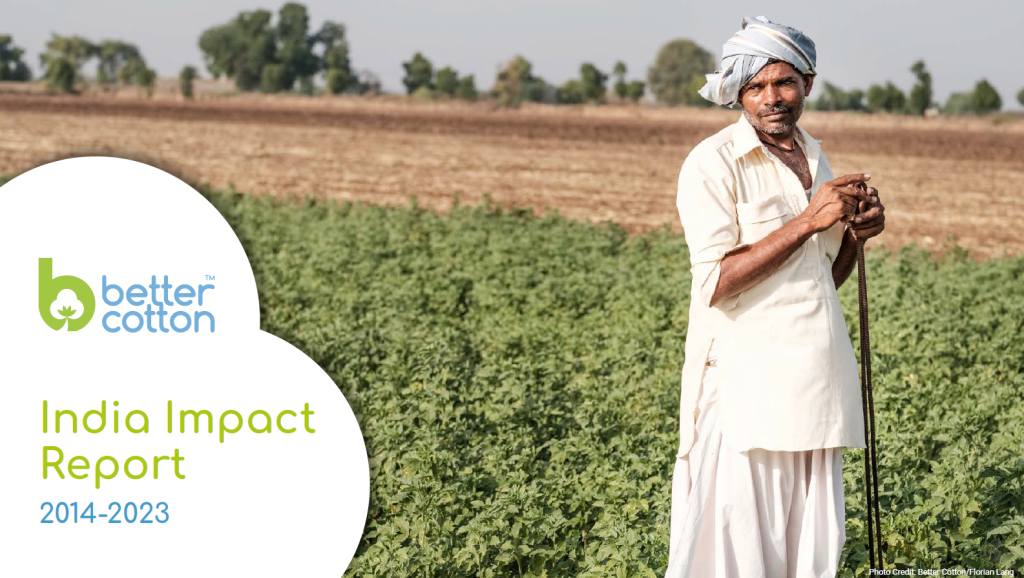- Who we are
- What we do
In just over 10 years we have become the world’s largest cotton sustainability programme. Our mission: to help cotton communities survive and thrive, while protecting and restoring the environment.
- Where we grow
Better Cotton is grown in 22 countries around the world and accounts for 22% of global cotton production. In the 2022-23 cotton season, 2.13 million licensed Better Cotton Farmers grew 5.47 million tonnes of Better Cotton.
- Our impact
- Membership
Today Better Cotton has more than 2,700 members, reflecting the breadth and diversity of the industry. Members of a global community that understands the mutual benefits of sustainable cotton farming. The moment you join, you become part of this too.
- Associate Membership
- Civil Society Membership
- Producer Organisation Membership
- Retailer and Brand Membership
- Supplier and Manufacturer Membership
- Find Members
- Member Monitoring
- Better Cotton Platform
- myBetterCotton
- Resources – Better Cotton Conference 2022
- Complaints
- Whistleblowing
- Safeguarding
- Get Involved in the Better Cotton Programme
- Thank you for contacting us
- Better Cotton’s Data Privacy Policy
- Log in
- Members’ Area
- Request for Proposals
- Better Cotton Cookie Policy
- Web Reference
- Measuring Cotton Consumption
- How to Implement the Chain of Custody Standard
- Resources – Better Cotton Conference 2023
- Certification Bodies Old
- Latest
- Sourcing
- Latest
The founding premise of Better Cotton is that a healthy sustainable future for cotton and the people that farm it is in the interests of everyone connected with it.
Let us help you find what you’re looking for
Results for {phrase} ({results_count} of {results_count_total})Displaying {results_count} results of {results_count_total}
BCI CEO Alan McClay spoke with Chandrakant Kumbhani, General Manager at ACF, a BCI Implementing Partner in India, about how the foundation is working to not only ensure farmers receive training and support for the upcoming cotton season, but also to prepare and equip them to deal with Covid-19 challenges.
AM: The cotton season in India is about to begin, and soon farmers will begin planting. What challenges do cotton farmers face in India in the lead-up to the cotton season?
CK: Labour issues are going to have an impact on preparing the land for the coming cotton season and the cotton harvest – because of the pandemic, there is a limited amount of farm workers available to hire. In northern regions of India, there is a possibilitythat farmers may dedicate more of their land to growing cotton. The area currently under paddy [rice production] needs more labour for transplantation, but this will not be available. Therefore, we are expecting a 15-20% increase in the area used to grow cotton. There is a push from the Government also to change crops from paddy to cotton as part of crop rotation in the state of Punjab in North India.
AM: In the media, there is a lot of coverage about loss of livelihoods for garment factory workers because many global brands have postponed or cancelled their orders. However, those at the beginning of the supply chain — cotton farmers — have largely been ignored. What do you think the short and long-term impact will be for cotton farmers in India?
CK: Farmers livelihoods are definitely going to be impacted. Already, in Gujarat and many other regions, farmers are finding it difficult to sell their harvests. Ginning factories are going to face the brunt of the this too, with no labourers available to hire, no cotton orders arranged and with lots of loans to be paid back. Additionally, farmers may “distress-sell’ their cotton — preventing them from waiting for a fair price for their cotton — as smallholder farmers will need cash for livelihoods as well as preparation for the next season.
AM: Why do cotton farmers need support from ACF and BCI during this time?
CK: Cotton farmers need support from ACF and BCI to take them through this challenging time, as it seems that the pandemic will prevail for some time. It is immensely important to secure farmers’ livelihoods during thisuncertain time. With a risk of disease spreading in rural areas, we are supporting farming communities with some financial assistance (for example, through loan support) which will help them to sail through this phase.
AM: In India, while farmers andagriculturalworkers are considered essential workers who are permitted to continue working, Field Facilitators (teachers, employed by ACF, who train farmers) are not permitted to travel to rural communities and deliver in-person support and training to farming communities. How is ACF adapting to this unique challenge while ensuring that farmers are still supported and trained on key Better Cotton Principles and Criteria?
CK: We have created WhatsApp groups for farmers, and in these groups we are sharing videos and audio messages in the local language and by using words which our farmers understand. With farmers who do not own smartphones, Field Facilitators are calling them up regularly to keep a continuousconnection with them. Apart from this, we are also using SMS and our community radio for broadcasting messages. We are even planning on making training materials accessible via QR codes for farmers with smartphones. Furthermore, we are assessing all of our farmer groups for differential messaging needs based on past capacity building interventions.


